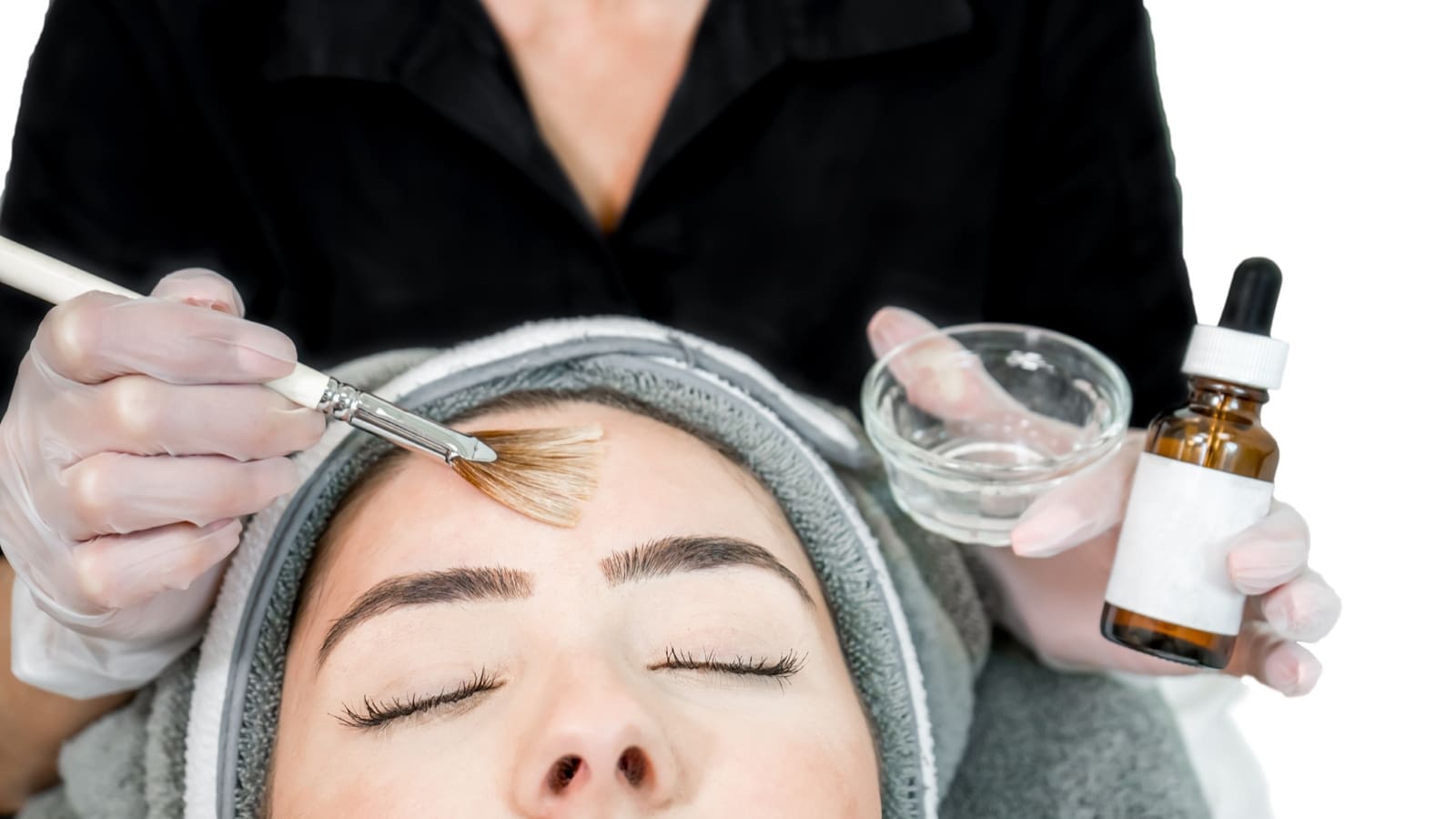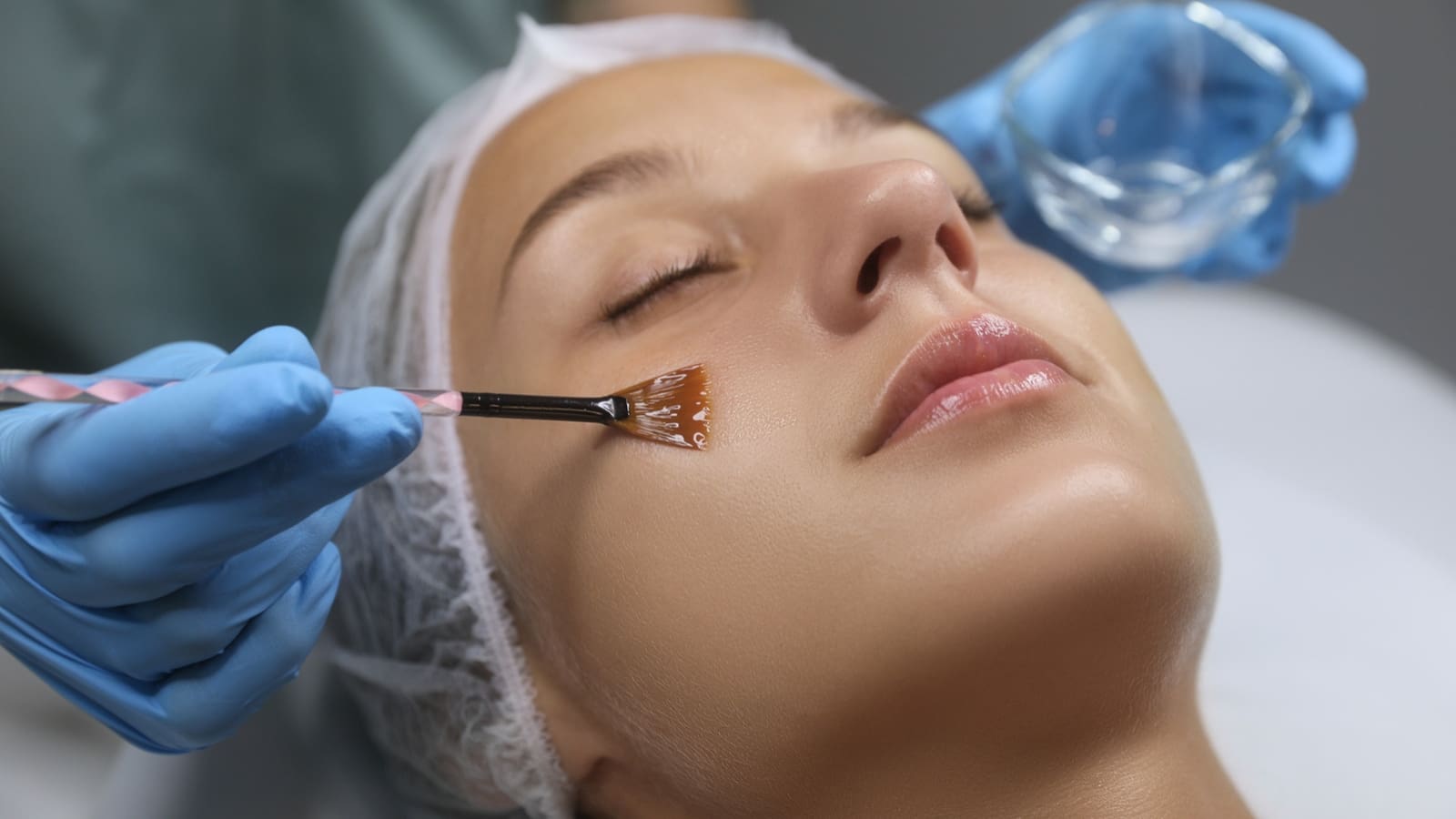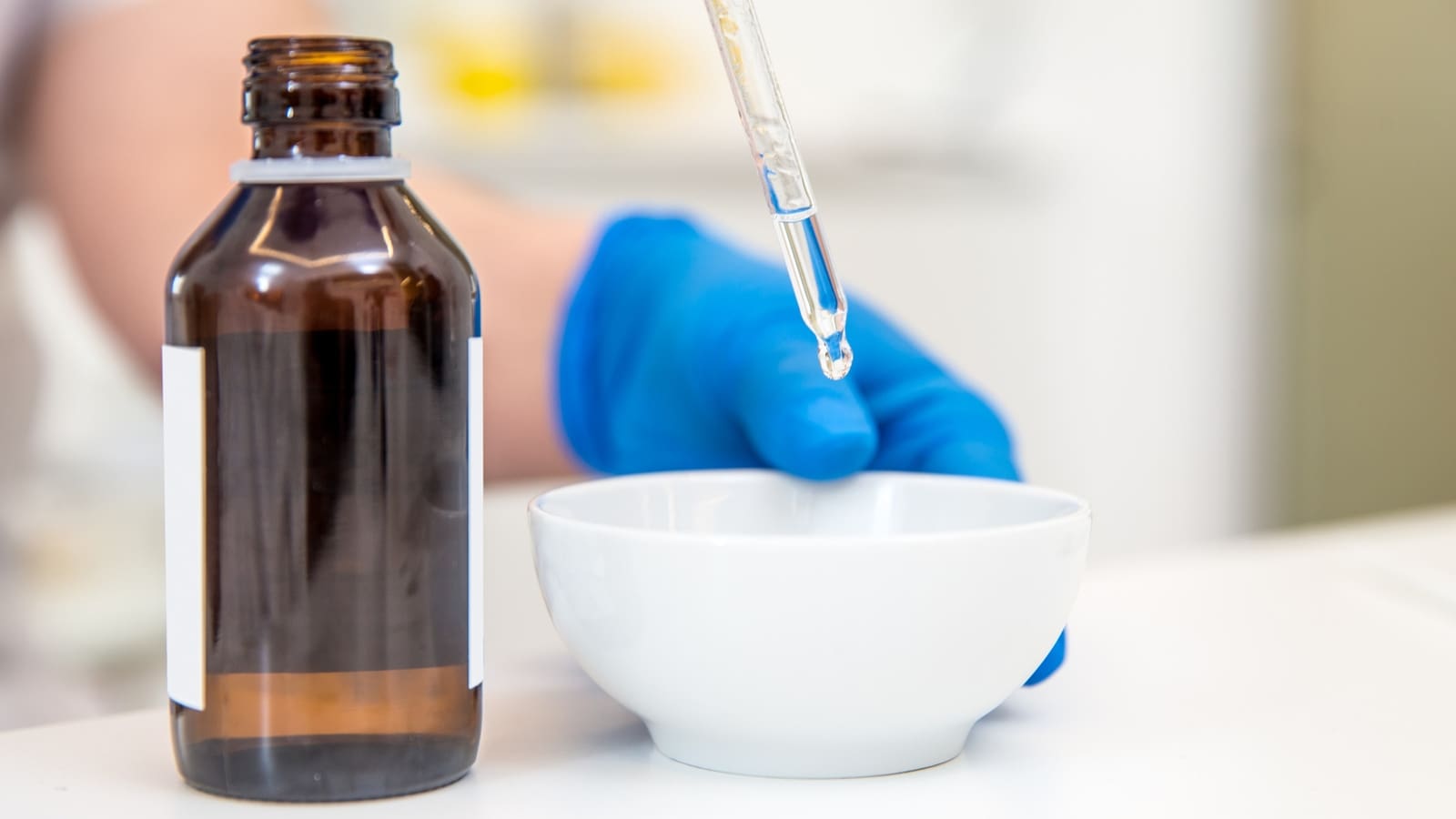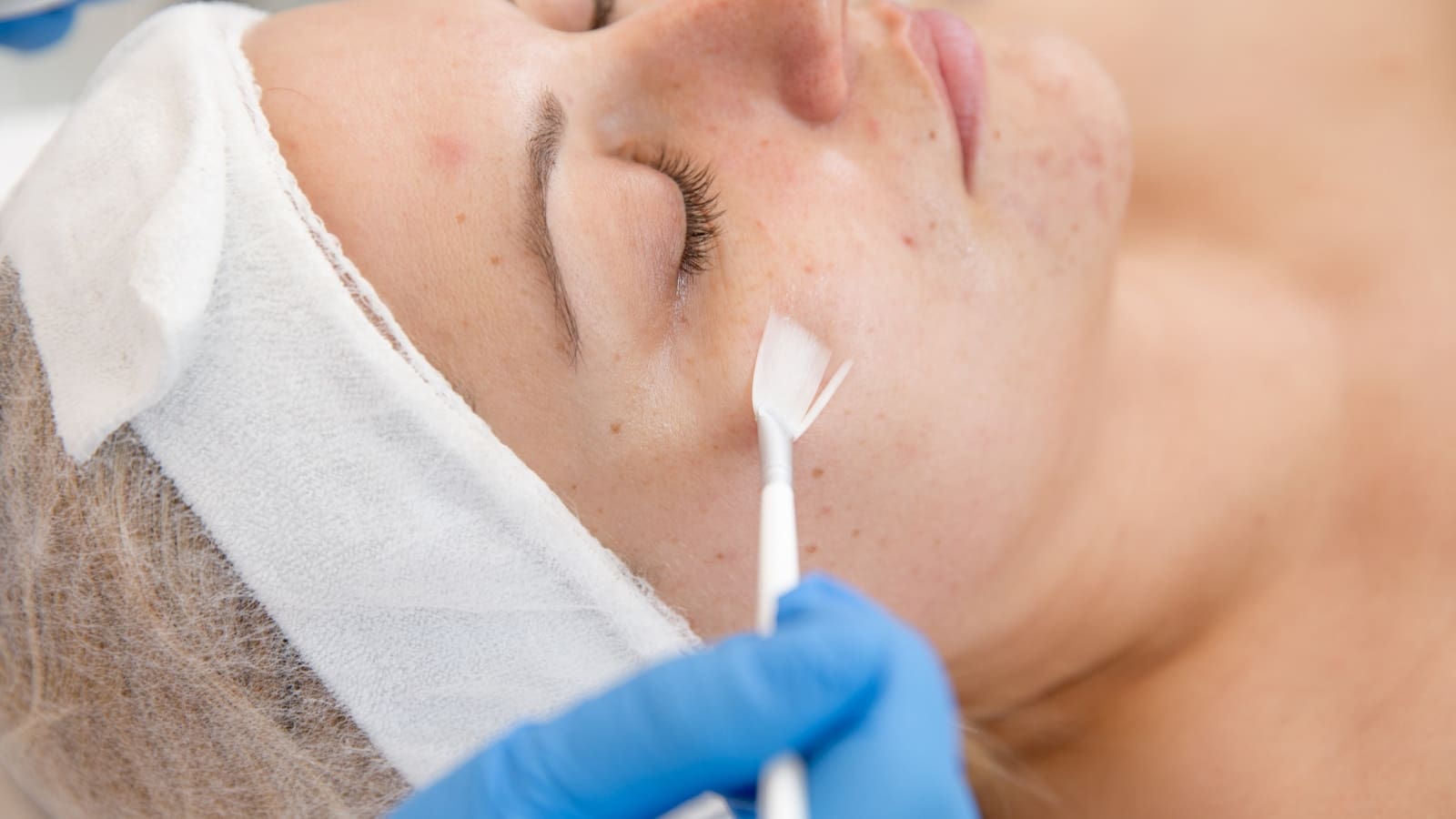Join The Nantwich Clinic Club to keep up to date with news and offers!
Sign Up
Chemical peels are a form of cosmetic procedure that uses a chemical solution to remove the outermost layers of the skin. This removal (or peeling) effect is designed to improve the appearance of the skin by reducing the appearance of certain skin conditions such as hyperpigmentation or acne scarring, or reducing the signs of imperfections like fine lines and wrinkles.

The fact that chemical peels can be used to target so many different concerns is down to the number of different chemical peels that are available to undergo. Most different companies or aestheticians use their own specially formulated peels to target individual concerns.
Starting out with at home chemical peels, these are just a step up from your standard exfoliation routine and combine a selection of the more familiar and safe for home use skincare acids like glycolic and salicylic acid to help to remove dead skin cells from the outer layers. Then we take a step up to the stronger “in clinic” peels that shouldn’t be performed by non-professionals and range in strength from lightly to highly concentrated. These chemical peels tend to be custom designed for specific concerns, ranging from fighting acne scarring to giving an even skin tone.
These chemical peels tend to fit into three distinct categories;
The exact form of chemical peel that is right for you will depend entirely on the results that you are looking to achieve and the severity of your skin concerns. This is something that you will be able to discuss during a consultation where you and one of our skin specialists can come up with the right treatment for your exact requirements.

At a general level, a good candidate for a chemical peel is someone who is already looking to improve the appearance of their skin whilst also not being concerned about the thought of some form of downtime or recovery period.
Having said that, they aren’t ideal for everyone and there are some things that will rule you out of treatment. As an example, sunburn or active acne outbreaks are definitely a red flag and you shouldn’t consider a peel until the skin has healed or the outbreak has calmed down. Another huge red flag is being prone to cold sores and medication should be taken to stop them from happening to avoid them spreading across the peeled area.

After having a chemical peel, the recovery period will vary depending on a number of factors including the severity of the peel that has been applied, the ingredients that it is made up of and the area that it has been applied to. Superficial peels generally only pose a few days of recovery whereas deep peels can have recovery periods that last for a couple of weeks.
You may notice or experience some redness, swelling and irritation in the treated area, as well as noticing that the skin feels dry or even tight. It’s incredibly important to follow the aftercare advice that is provided during the treatment as it will be the difference between the skin healing correctly or not. One huge piece of advice that we always provide is ensuring that moisturising creams and high SPF sunscreen is used while the skin heals to keep it from becoming dry and damaged.

Firstly, you should be taking your skin type into consideration as the first step before making a decision to opt for a chemical peel. If you suffer from sensitive skin, chemical peels are not recommended.
Your medical history should also be something that you bear in mind before getting a chemical peel. Underlying medical conditions like eczema and psoriasis can cause complications and a doctors advice is advised prior to the treatment.
Your expectations should also be something that you need to keep in mind too. While chemical peels are able to improve the texture and appearance of the skin, they aren’t a miracle cure for all ailments and you shouldn’t be expecting drastic differences after just one treatment if you’re struggling with severe concerns.
To find out more about chemical peels and how you could benefit from one, contact our team on 01270 627118 to book an aesthetic consultation.
Whether it’s a quick question that you need to ask, or you would like to book an appointment with us, we want to hear from you. Simply click the button below to get started or contact us on 01270 627118.
